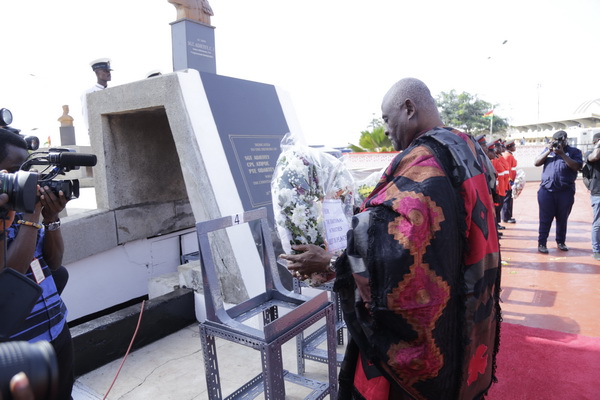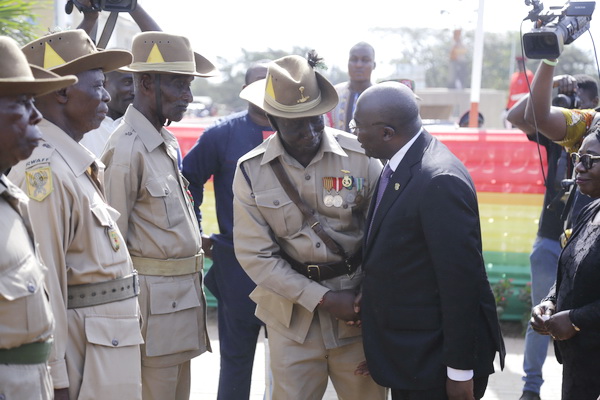
February 28 Christiansborg crossroads shooting marked
A wreath-laying ceremony to commemorate the 70th anniversary of the February 28 Christiansborg crossroads shooting incident that precipitated the country’s struggle for independence took place at the Nationalism Park at Osu in Accra on Wednesday.
The event was attended by the Vice-President, Dr Mahamudu Bawumia, government officials, security personnel, traditional leaders, veterans, the clergy, students and pupils from selected basic and second cycle schools.
Five wreaths were laid, with Dr Bawumia laying one on behalf of the government and the people of Ghana. Others were laid by the Chief of Defence Staff, Major General Obed Akwa, on behalf of the security services; and the National Chairman of the Veteran Association of Ghana (VAG), Major General C. B. Yekyere (Retd) on behalf of veterans.
The Osu Mantse, Nii Okwei Kinka Dowuona laid a wreath on behalf of traditional authorities and Mr Prosper Attipoe, a representative of Sgt Attipoe’s family, laid a wreath on behalf of the fallen soldiers.

Fallen soldiers
The ceremony, held annually, is to honour three ex-servicemen who were killed during a peaceful march to the Christiansborg Castle on February 28, 1948.
The three - Sergeant Adjetey, Corporal Attipoe and Private Odartey Lamptey — all members of the then Gold Coast Regiment of the Royal West African Frontier Force, were killed by the colonial police while marching peacefully to the Castle to present a petition to the then Governor, Sir Gerald Creasy.
Background
On the noon of February 28, 1948, a number of ex-servicemen were marching from Accra to the Christiansborg Castle to present a petition to the governor over their unpaid war benefits.
They were, however, intercepted at the crossroads by a contingent of armed policemen.
The contingent, led by British Police Superintendent, Mr Colin Imray, ordered that they disperse and when they refused to obey, he gave an order to the police to open fire; and the three ex-servicemen were killed.
The ex-soldiers had fought alongside the allied forces in the Gold Coast Regiment of the Royal West African Frontier Force during the Second World War and had returned home poor but they were not paid their gratuity.
After several appeals to the colonial government to consider their plight had failed, the ex-servicemen decided that a direct appeal should be made to the British colonial governor of the Gold Coast, hence the march.
